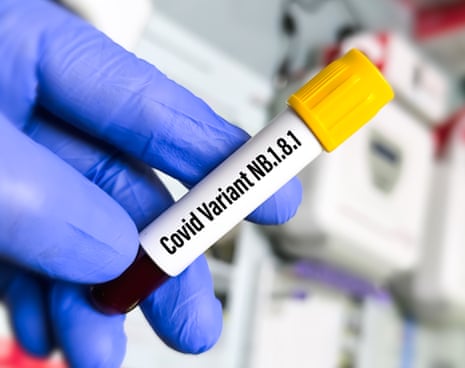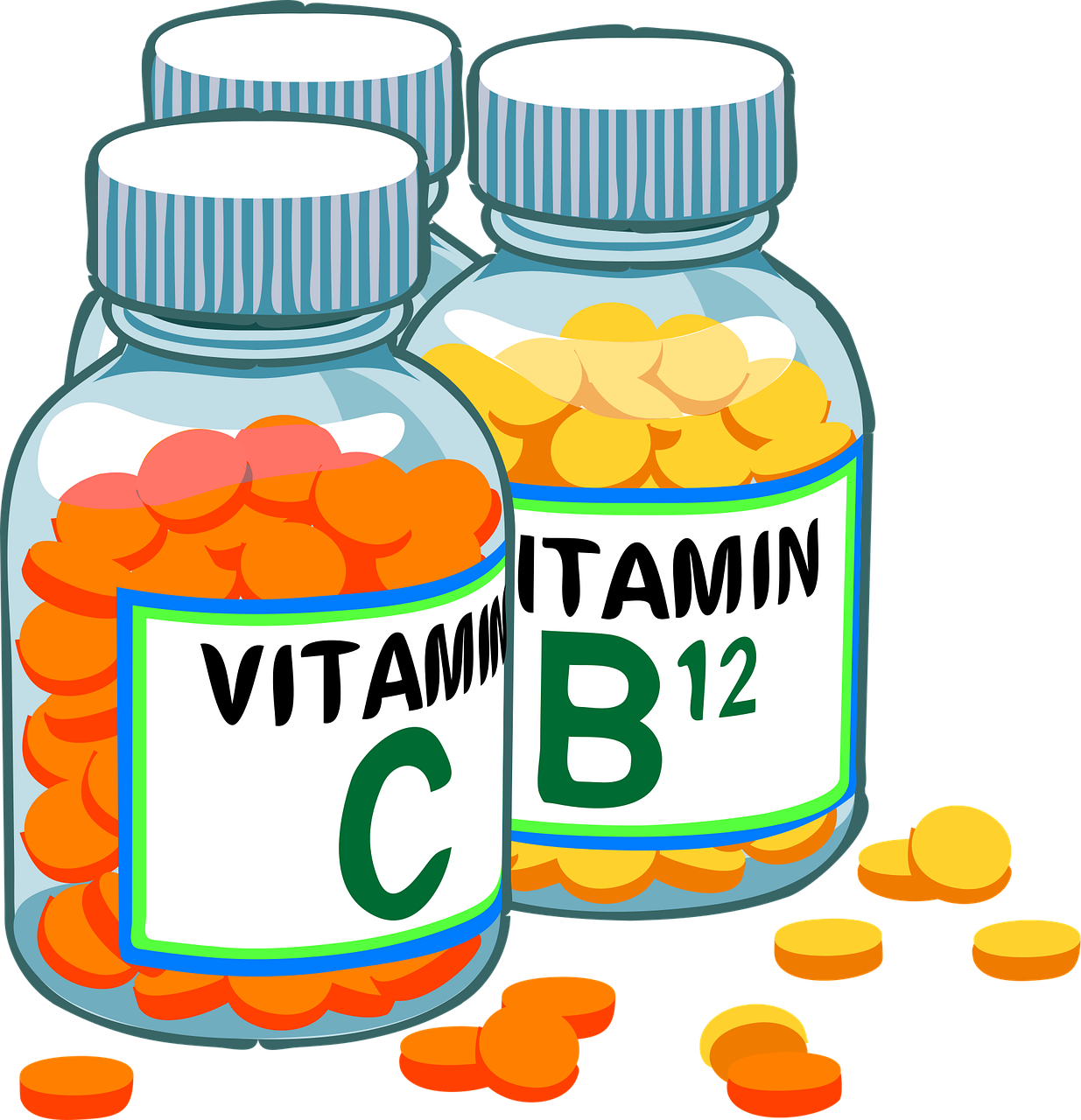This article was analyzed by Serge, MSc. Leveraging expertise in Biochemistry and Chemical Quality Control, I share insights and recommendations backed by research and clinical evidence to ensure you find safe and effective supplement solutions.

The global health landscape continues to shift as a new Covid-19 variant, NB.1.8.1 (also known as Nimbus), spreads in several nations, raising concerns about a potential summer wave.
While the situation remains fluid, experts, including Dr. Leana Wen, an emergency physician and public health advocate, offer key insights into how we should approach the resurgence of this virus and what preventative steps we can take. Let’s break down the current situation and look at practical ways we can protect ourselves and others.

A- What Is NB.1.8.1 and Why Should We Be Concerned?
The variant NB.1.8.1 is a descendant of the Omicron strain of the SARS-CoV-2 virus. Its emergence has been tied to a rise in Covid-19 cases, particularly in China and several Asian countries, and experts in Europe and the United States anticipate that this variant could lead to a potential wave of infections during the summer months.
As Dr. Wen highlights, it’s entirely expected that new variants of the virus will continue to emerge as the virus evolves. Viruses like SARS-CoV-2 mutate when they have opportunities to spread, and this variant, while not definitively more severe, appears to be more contagious. This could cause a rise in cases, especially as immunity from previous vaccinations or infections naturally wanes over time.
While the World Health Organization (WHO) classifies NB.1.8.1 as a “variant under monitoring,” there’s still a lot we don’t know. The variant may have some immune escape potential, meaning it could be less responsive to immunity from prior infections or vaccinations.
However, it’s still a close relative of previous strains, and the vaccines we’ve been using may offer some level of protection, though perhaps not as much as before.

B- Should We Be Concerned About a Summer Wave of Covid-19?
The short answer is yes, it’s entirely possible. Based on historical trends, Covid-19 cases tend to rise in waves. A summer wave, driven by a combination of factors including the spread of new variants and decreasing immunity among the population, is a real possibility.
Dr. Wen suggests that the immune system’s decreasing defenses, combined with the potential for a more contagious strain like NB.1.8.1, could cause a surge in cases, similar to what we’ve seen in previous years.
If you’re wondering how this wave could impact you, it’s important to consider your personal health risks and the steps you can take now to protect yourself. While many people will recover from Covid-19 with minimal symptoms, others may experience severe illness.
For individuals with underlying conditions, the elderly, or those who are immunocompromised, Covid-19 can lead to serious health complications. Additionally, some individuals may develop long Covid, which can have lasting effects on health.

C- Are Current Vaccines Still Effective Against NB.1.8.1?
As Dr. Wen mentioned, the effectiveness of current vaccines against NB.1.8.1 remains an open question. Laboratory data suggests that the variant might have some immune escape, meaning it could evade the protection provided by vaccines and prior infections. However, it’s also important to note that the vaccines are still likely to offer some protection against severe disease, hospitalization, and death.
Given that NB.1.8.1 is related to previous variants, the existing vaccines may still provide a level of defense, especially against the most serious outcomes of infection.
As the CDC and other health authorities continue to monitor the situation, there may be updated vaccines released later this year that target this variant specifically. Dr. Wen anticipates that a new formulation will likely be available by the fall.
D- Who Should Get Another Shot?
The question of whether you should get an additional vaccine dose is a personal one.
Here’s my take, based on my own experiences and understanding of the evolving Covid-19 situation.
If you’re 65 years or older or have any underlying health conditions (such as diabetes, heart disease, or autoimmune disorders), you should strongly consider getting an additional shot of the Covid-19 vaccine right now. This will offer you an extra layer of protection against the variant and help ensure you’re covered if the expected summer wave arrives.
For younger, healthy individuals, you may want to weigh the risks and benefits with your doctor. If you haven’t received a recent vaccine or you’re uncertain about your immunity, it might be worth discussing with a healthcare provider to determine if an additional shot makes sense for you.
Remember, getting vaccinated not only helps protect you but also reduces the risk of transmission to others, particularly those who are more vulnerable.
E- What Preventative Measures Should We Be Taking?
Preventing the spread of Covid-19 doesn’t just hinge on vaccination; there are practical, day-to-day measures we can all take to reduce our risk of contracting or spreading the virus.
1. Wear a Mask in Crowded Places.
While mask mandates have relaxed in many places, wearing a well-fitting N95 or KN95 mask in crowded indoor spaces — like public transportation, grocery stores, or busy shopping areas — can still reduce your risk. This is especially true for individuals who are more vulnerable to severe illness.
2. Practice Good Hygiene.
Wash your hands regularly and use hand sanitizer when soap and water aren’t available. This simple practice can significantly reduce the spread of not just Covid-19, but other respiratory viruses as well.
3. Maintain Physical Distance When Possible.
While it’s difficult to maintain distance in all situations, avoiding close contact with people who are unwell or not in your immediate circle can help minimize your exposure to the virus.
4. Stay Home if You’re Sick.
This is perhaps one of the most straightforward but effective ways to limit the spread of Covid-19. If you’re feeling unwell, it’s better to stay home, rest, and avoid contact with others until you’re no longer contagious.
5. Improve Indoor Ventilation.
If you’re spending time indoors, try to increase ventilation. Open windows when possible or use air purifiers to help reduce airborne particles, including the virus.
As someone who works in a high-stress, fast-paced environment, I’ve seen firsthand how Covid-19 has affected people’s lives. Personally, I don’t believe in extreme measures or avoiding life altogether, but I do think we must make small adjustments to keep ourselves and others safe.
For instance, I personally continue to wear a mask when I’m in crowded places and take extra precautions to keep my immune system strong.
It’s also crucial to remember that staying healthy is about more than just avoiding the virus. It’s about making sustainable choices: getting enough rest, eating nourishing foods, staying active, and managing stress. All of these factors contribute to a stronger immune system, which is key when facing any health challenge, including Covid-19.
F- Conclusion: What You Can Do to Protect Yourself.
The current Covid-19 resurgence is a reminder that the virus is still with us, but we have the tools to protect ourselves and reduce transmission. Whether it’s through vaccination, wearing masks, practicing good hygiene, or taking care of our overall health, we all have a role to play in managing this pandemic.
As we move into the summer months, it’s important to stay informed and remain vigilant. Continue to monitor guidance from health authorities, get vaccinated as needed, and be mindful of the measures you can take to protect yourself and your loved ones.
If you’re uncertain about whether to get vaccinated or what measures to take, don’t hesitate to speak with a healthcare provider to discuss what’s best for your individual situation.
Let’s stay safe, stay informed, and keep doing our part to minimize the spread of Covid-19.












